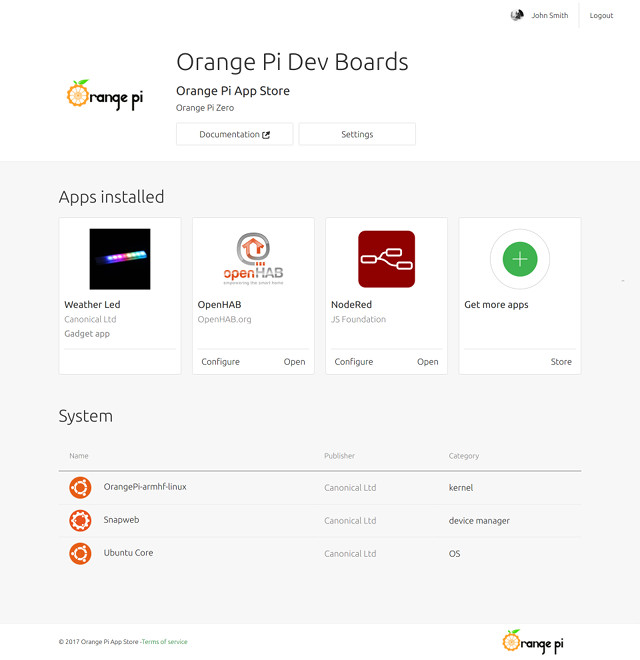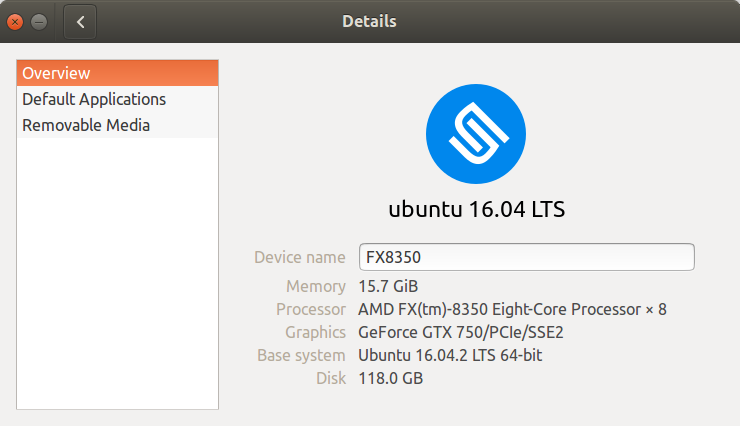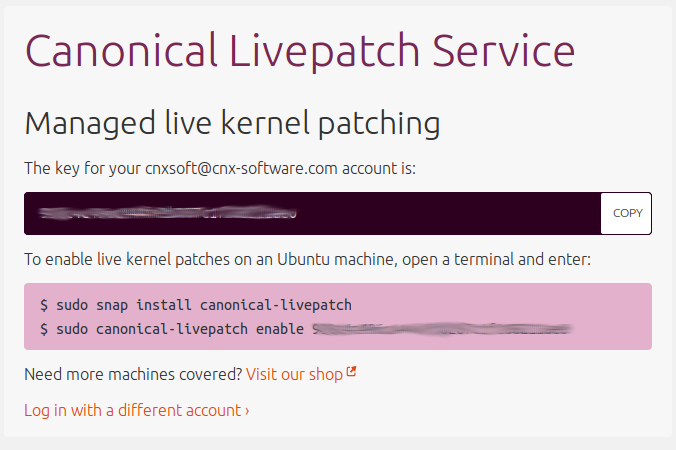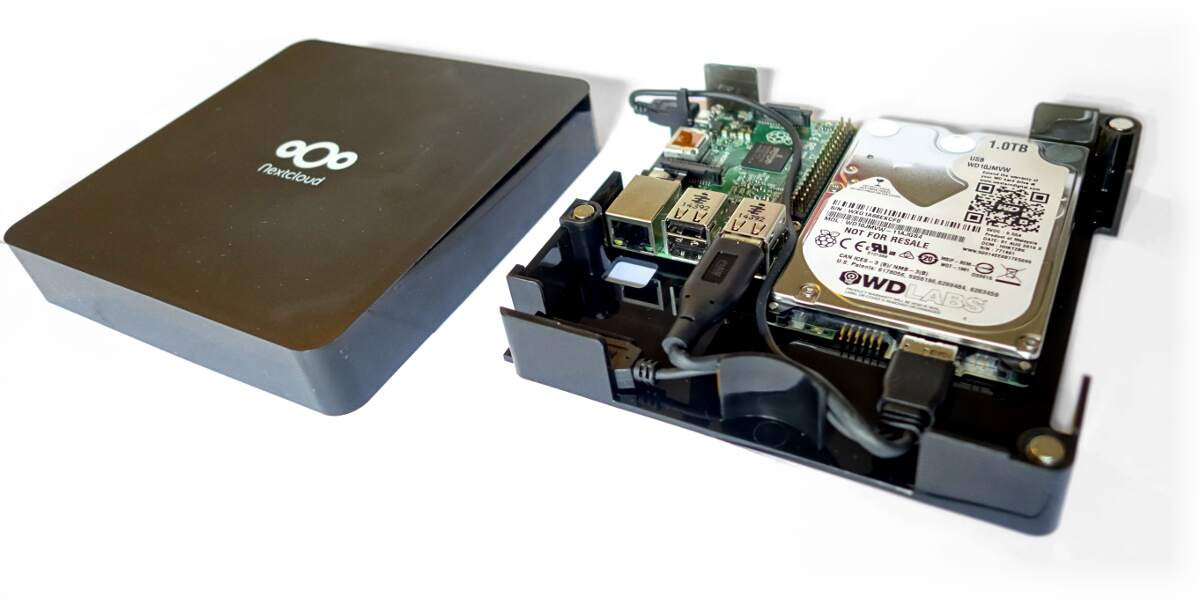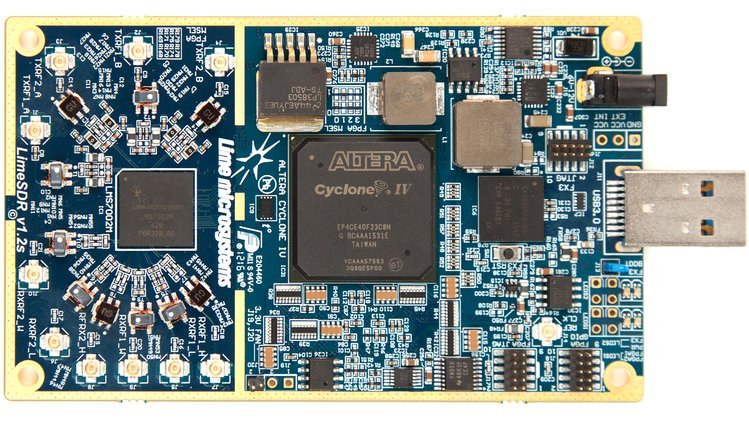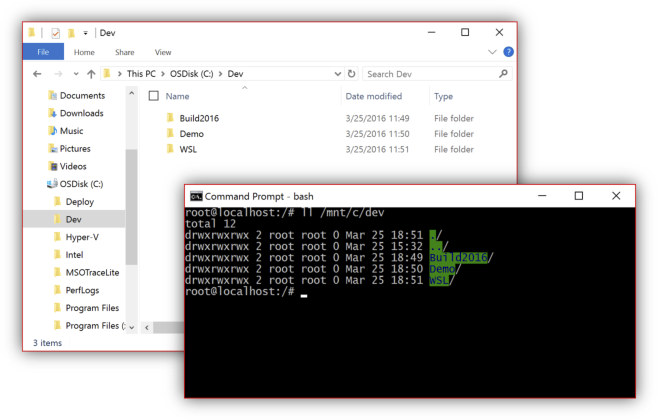Amazon Web Services (AWS) provides cloud computing services to manage & store data from IoT Nodes over the Internet, but in some cases latency may be an issue, and Internet connectivity may not be reliable in all locations. AWS Greengrass provides a solution to those issues by running some of the IoT tasks within the local network in ARM or x86 edge gateways running Linux. You can still manage your devices from AWS cloud, but a Linux gateway running Greengrass Core runtime will be able to run AWS Lambda functions to perform tasks locally, keep device data in sync, and communicate with devices running AWS IoT Device SDK. Greengrass benefits include: Response to Local Events in Near Real-time Offline operation – Connected devices can operate with intermittent connectivity to the cloud, and synchronizes with AWS IoT once it is restored Secure Communication – AWS Greengrass authenticates and encrypts device data […]
Canonical Refocuses Ubuntu Development Efforts on Cloud and IoT, Drops Convergence and Mobile
Mark Shuttleworth has published a new blog post in Ubuntu Insights, and this is not all good news, as the title “Growing Ubuntu for Cloud and IoT, rather than Phone and convergence” implies. Canonical has decided to drop Unity8, and replace it with Gnome in Ubuntu 18.04, and by extension stop any investment in Ubuntu phone and convergence. The main reasons given for the drop were that few commercial partners were interested in the project, preferring to stick with the most popular mobile operating systems like Android, and the community did not see the work as innovation, but instead fragmentation, probably referring to the Mir vs Wayland saga. On the better news, Canonical is still committed to work on Ubuntu desktop, and will focus on the Cloud and IoT applications such as automotive, robotics, networking, and machine learning, for which the company has gone well so far with multiple commercial […]
Shenzhen Xunlong Software & Canonical Launch Orange Pi App Store for Ubuntu Snaps
The maker of Orange Pi boards, Shenzhen Xunlong Software, has partnered with Canonical to launch Orange Pi app store, allowing developers to gain a simple mechanism to share their applications, projects and scripts with the Orange Pi community. The store relies on snaps instead of deb packages, with snaps allowing a secure distributions of apps bundled with all their dependencies, which according to Canonical can decreased the time for an half an hour installation process to just a few seconds. The community has already contributed hundreds of snaps in the Ubuntu snap store, including openHAB for home automation, Rocket.chat self-hosted chat platform, NextCloud for cloud storage, and wifi-ap for networking. You can get them from the App store, but installing a snap from the command line is easy, for example:
|
1 |
sudo snap install rocketchat-server |
However, I cannot find any Ubuntu Core image for Orange Pi Boards yet on Ubuntu Core Getting Started page. […]
How to Upgrade to Linux 4.8 in Ubuntu 16.04.2
I had read from several news sources that Ubuntu 16.04.2 would come with Linux 4.8. My system was upgraded from Ubuntu 16.04.1 to Ubuntu 16.04.2 this week-end, but I still had Linux 4.4.
|
1 2 3 4 5 6 7 |
cat /etc/lsb-release DISTRIB_ID=Ubuntu DISTRIB_RELEASE=16.04 DISTRIB_CODENAME=xenial DISTRIB_DESCRIPTION="Ubuntu 16.04.2 LTS" uname -a Linux FX8350 4.4.0-62-generic #83-Ubuntu SMP Wed Jan 18 14:10:15 UTC 2017 x86_64 x86_64 x86_64 GNU/Linux |
So I wondered why that was, and eventually found my answer on Reddit thanks to EndofLineLF user: If it isn’t a new 16.04.2 installation then you won’t have newer kernel. If your install started as 16.04 or 16.04.1 then with all updates installed “lsb_release” will display 16.04.2 as version because that’s what you have. The switch to HWE (Hardware Enablement Stack) was never automatic. So if you want newer kernel you have to install it manually. https://wiki.ubuntu.com/Kernel/RollingLTSEnablementStack#Packages-1 sudo apt-get install –install-recommends xserver-xorg-hwe-16.04 This will also install the new HWE kernel because it is recommended for that package. Upgrading to the new kernel is completely optional, and Linux 4.4 will still get security updates, but I did […]
Canonical Livepatch Service Automatically Updates Ubuntu 16.04 LTS (and later) with the Latest Kernel without Rebooting
Installing or upgrading packages in Linux distributions does not normally require rebooting your system, except for the Linux kernel and drivers. But since Linux 4.0 kernel, Live Kernel patching is possible, meaning Linux kernel updates can be performed without having to reboot your server or computer. Canonical is now taking advantage of this new feature with their Livepatch Service available for Ubuntu 16.04 LTS and greater. If you want to enable it on your machine, you’ll have to authenticate to Livepatch portal to get a key / token for the service as shown in the screenshot above. Now you can install the service:
|
1 |
sudo snap install canonical-livepatch |
and enable it with your token:
|
1 2 |
sudo canonical-livepatch enable [your-token] Successfully enabled device. Using machine-token: [your-token] |
That’s it. Your can check Livepatch service status with the command:
|
1 2 3 4 5 6 7 8 9 10 11 12 13 14 15 16 |
canonical-livepatch status --verbose client-version: "5" machine-id: [your-machine-id] machine-token: [your-machine-token] architecture: x86_64 cpu-model: AMD FX(tm)-8350 Eight-Core Processor last-check: 2016-10-25T19:35:55.009247615+07:00 boot-time: 2016-10-25T09:00:09+07:00 uptime: 10h52m7s status: - kernel: 4.4.0-45.66-generic running: true livepatch: state: nothing-to-apply version: "" fixes: "" |
In my case, an update was not necessary, but if there’s one you should see something like:
|
1 2 3 4 |
livepatch: state: applied version: "12.2" fixes: '* CVE-2012-6828' |
That way you can make sure your system always […]
Nextcloud Box is a $80 Private Cloud Server with 1TB HDD for Development Boards
While there are plenty of cloud services provided by companies such as Dropbox or Google, you may want to manage you own private cloud server instead for performance and/or privacy reasons. One typical way to do this is to install Owncloud or Nextcloud (a fork of Owncloud), on a Linux computer or board such as Raspberry Pi 3. The former is usually a little expensive for just this task, the latter often results in cable mess, and in both case, some people may not be comfortable with setting it all up. Nextcloud, Western Digital, and Canonical seems to have addressed most of those issues with Nextcloud Box including a 1TB USB 3.0 WDLabs harddrive, Nextcloud case with space for the drive and small ARM or x86 Linux development boards, and a micro USB power supply. The kit also include a micro SD card pre-loaded with Snappy Ubuntu Core, Apache, MySQL […]
LimeSDR Open Source Hardware Software Defined Radio Goes for $199 and Up (Crowdfunding)
Canonical and Lime Micro showcased SoDeRa software defined radio (SDR) a couple of months ago, with a promise to launch a crowdfunding campaign later this year. They’ve fulfill their promise, and launched the open source SDR, renamed to LimeSDR, on Crowdsupply. LimeSDR board specifications: FPGA – Altera Cyclone IV EP4CE40F23 Altera FPGA compatible with EP4CE30F23 System Memory – 256 MB DDR2 SDRAM RF Lime Microsystems LMS7002M RF transceiver with continuous coverage of the frequency range between 100 kHz and 3.8 GHz; 61.44 MHz bandwidth 4 x TxOut and 6 x RxIn U.FL connectors Power Output (CW): up to 10 dBm Wi-Fi, GSM, UMTS, LTE, LoRa, Bluetooth, Zigbee, RFID, Digital Broadcasting, configurable through apps. USB – 1x micro USB3 via CYUSB3014-BZXC Cypress Microcontroller for control, data transfer and power Misc – Status LEDs, RGB LEDs, 4x switches Power – USB or external power supply Dimensions – 100 mm x 60 mm The board […]
Microsoft Brings Bash on Ubuntu on Windows 10
Yes, you’ve read that right, and no, it’s not an April Fools’ Day prank, Microsoft and Canonical really cooperated to bring Ubuntu user space to Windows 10 allowing developers and others to run bash commands directly into Windows. All you’ll need to do is to install Ubuntu on Windows app, hit the Windows key, and type bash to get a terminal window. Once you are in bash, you can run any Ubuntu command line, including apt-get to install packages, just like if you were in a terminal in Ubuntu, and all binaries are the same as in Ubuntu, as Microsoft implemented new infrastructure within Windows called the Windows Subsystem for Linux (WSL). That means Ubuntu runs without Linux, but instead the implementation is a conversion layer somewhat similar to Wine to run Windows programs in Ubuntu, or Libhybris to convert Linux calls to Android calls. Dustin Kirkland, in charge of […]




